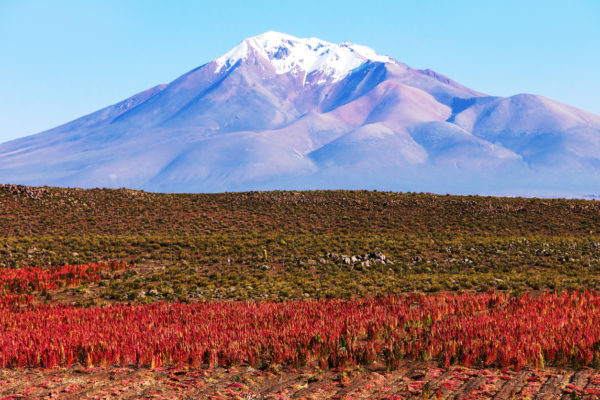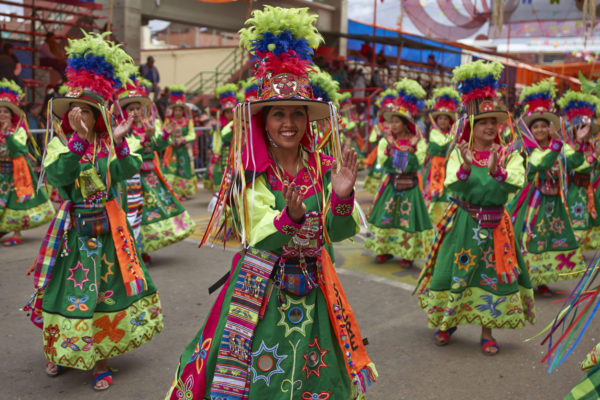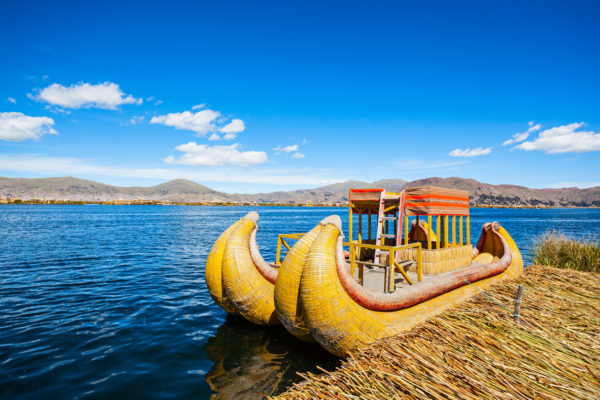Finding a Path to Social, Ecological and Economic Sustainability
Karen Bell is Principal Investigator of the project Fair and Inclusive Environmental/Social Transition Alternatives: Learning from the ‘Living Well’ and ‘Green Economy’ Pathways to Sustainability and is Senior Research Associate at the School for Policy Studies, University of Bristol.

While there is wide agreement on the need to move towards fairer and more sustainable societies, how to best achieve this is still the source of some debate. This project focuses on two paradigms that aim to achieve this change – Green Economy and Living Well. The first of these takes a more market-based/technological approach, while the second embodies a more redistributive/social approach to the transition to sustainability. At present, I am half-way through the research project and most of the data analysis to date has been on the Living Well paradigm, so here I will discuss only my findings from this aspect of the study.
Though Living Well is a strategy which has been proposed as a path to social, ecological and economic sustainability by several state governments of the Global South, this project focuses on its implementation in Bolivia, the first country to follow this path. It assesses the success of the paradigm by measuring its achievements in relation to the new Sustainable Development Goals (SDGs). The research is based on documentary, policy and secondary data analysis, participant observations and semi-structured interviews with local stakeholders. The findings to date indicate that, despite constraints and set-backs, in just a decade, Living Well has achieved a major shift towards social, economic and ecological sustainability in Bolivia. This seems to be primarily a result of the emphasis on redistributive policies, an intention to live in harmony with nature, respect for traditional values and practices, local control of natural resources, and participative decision-making.
Living Well has a long history in the customs and beliefs of the indigenous people of the Andes. It is known as Vivir Bien or Buen Vivir in Spanish, also sometimes referred to as Suma Qamaña in Aymara, Sumaj Kawsay in Quechua, or Ñande Reko in Guaraní. There is a great deal of contention about the term which leaves it open to a variety of interpretations and framings, but it has core elements which can be found in most definitions – It challenges the perceived divide between nature and society and it is strongly participatory, valuing solidarity and reciprocity instead.
The Bolivian government was the first government in the world to fully embrace this philosophy, with Ecuador following closely behind. Bolivia had become severely environmentally, socially and economically impoverished as a result of 500 years of colonialism. The economy increasingly focused on extractive industries, especially silver, gold and tin mining, with profits going to the rich and dominant countries of the globe. This caused land degradation, deforestation and pollution in Bolivia, leaving vast regions and communities sickened. However, in late 2005, Bolivia took a radical change of direction when the Movement towards Socialism (Movimiento al Socialismo [MAS]) won the national election. With Evo Morales as its leader, the MAS government embarked on a major programme of ‘decolonisation’ — throwing off the practices and institutions of the colonial era. The MAS government began to address the severe environmental challenges through the Vivir Bien/Living Well paradigm, defined in Bolivian law as ‘a civilizational and cultural alternative to capitalism based on the indigenous worldview (cosmovision)’ that ‘signifies living in complementarity, harmony and balance with Mother Earth and societies, in equality and solidarity and eliminating inequalities and forms of domination. It is to Live Well amongst each other, Live Well with our surroundings and Live Well with ourselves’.
There are numerous examples of practical policies and programmes focused on, and arising from, the Living Well paradigm in Bolivia. According to the new Bolivian constitution, all development projects are to be evaluated in terms of their ability to fulfil the goal of Living Well, and the concept is central to the new body of legislation that has been passed since 2006 and their accompanying institutions. For example, there is now a Plurinational Authority of Mother Earth and Living Well has been the cornerstone of successive National Development Plans, such as ‘Bolivia Sovereign, Productive and Democratic to Live Well’ and ‘Framework of Integrated Development for Living Well’. The Living Well programmes and policies mentioned below in relation to the SDGs are all aligned with, reflect, or in some cases can be directly attributed to, these overall legislative changes and policy documents.
With regard to the SDGs, some of the main achievements to date are as follows:
Goal 1: End poverty in all its forms everywhere
Under the living well paradigm, absolute poverty levels in Bolivia fell from 59.6% in 2005 to 38.6% in 2015 and extreme poverty more than halved. The main programmes for reducing poverty and inequality have been transfer payments targeting the most vulnerable groups, including an annual stipend for children who stay in primary school, a national pension and social security scheme, a national health insurance programme for under-25s, a supplement for women who are pregnant or have young children, long-term investments in health and education, annual increases in the national minimum wage, and redistribution of wealth through land reform.
Goal 2: End hunger, achieve food security and improved nutrition and promote sustainable agriculture
There have been sustained reductions in Bolivia’s hunger indices since 2005. In addition to the measures to reduce poverty, enabling families to buy more and better-quality food, there have been specific policies to reduce hunger, including establishing local councils for food and nutrition a National Programme on Complementary School Feeding to Implement Food Sovereignty and Living Well which entitles all school children to a breakfast and/or lunch and local producers must be prioritised as suppliers.
Goal 3: Ensure healthy lives and promote well-being for all
Under the Living Well paradigm, Bolivian life expectancy at birth increased by approximately 3 to 5 years in the decade from 2005. In the same period, infant mortality, under 5 mortality and both female and male adult mortality fell significantly. Health has been one of main pillars of the National Development Plans for Living Well and there has been a new national health policy, initiated in 2008, based on principles of equality, access, and respect for indigenous principles.
Goal 4: Ensure inclusive and equitable quality education and promote lifelong learning ‘opportunities for all
Illiteracy, which stood at approximately 14% in 2006, has now been eradicated and the primary school drop-out rate, at 25.6 in 2000 (there is no data for 2005) has now dropped to less than 3.3. These educational achievements link to policies of the National Development Plans for Living Well including the Bolivian education reform act of 2010 which is radically transforming education according to four general principles or objectives: (1) decolonial, (2) intra- and intercultural along with plurilingual, (3) productive and (4) communitarian education.
Goal 5: Achieve gender equality and empower all women and girls
The United Nation’s Gender Development Index (GDI) records an overall improvement for Bolivia in terms of female relative to male development and the Gender Inequality Index (GII) shows a marked reduction. In 2008, the National Plan for Equal Opportunities entitled Women Building the New Bolivia, to Live Well was launched. The Government Cabinet appointed in 2010 was, for the first time in the country’s history, comprised of 50 percent women, though has fluctuated slightly since. New legislation was passed in 2013 to stop intimate partner violence and a specific Police Force Against Violence to counteract gender abuses was set up.

Goal 6: Ensure availability and sustainable management of water and sanitation for all
Safe water and sanitation services are part of the National Development Plans for Living Well. According to the latest World Bank data, 90% of the Bolivian population had access to a safe water source in 2015, up from 82.9% in 2005. Improved sanitation stood at 50.3% in 2015, up from 42.2% in 2005.
Goal 7: Ensure access to affordable, reliable, sustainable and modern energy for all
In the National Development Plans for Living Well universal electrification was defined as a priority, alongside energy sovereignty and independence. In 2007, total access to electricity in Bolivia was 80.2%, and this has now increased to 88% (96% in urban areas and 74% in rural areas). Despite its reserves of gas, Bolivia is also committed to extending the provision of renewable energy photovoltaic systems and wind turbines.
Goal 8: Promote sustained, inclusive and sustainable economic growth, full and productive employment and decent work for all
Economic growth as a means to sustainability is contradictory notion for some and seems to go again the Living Well value to respect nature’s limits. Hence, though referred to in the National Development Plans for Living Well, neither GDP nor growth are specific goals. However, socially useful growth has occurred with GDP per year almost quadrupling during the Living Well paradigm. It is considered that the growth has occurred in part as a result of increased domestic consumption of those on low incomes, enabled by better wages and benefits, increased public investment and the creation of new public companies.
Goal 9: Build resilient infrastructure, promote inclusive and sustainable industrialization and foster innovation
Bolivia’s industrial growth rate has almost doubled during the Living Well decade. In its National Development Plans for Living Well, the Bolivian government has placed significant emphasis on infrastructure and industrialization which fosters inclusivity. State-sponsored science and technology projects are increasingly prominent in Bolivia and much is being done to foster work in these fields, though with an emphasis on using local sustainable materials and methods and respecting indigenous or ancestral knowledge.
Goal 10: Reduce inequality within and among countries
Reducing forms of inequality and discrimination are major goals of the National Development Plans for Living Well. According to World Bank data, the Gini Coefficient dropped from 58.47 in 2005 to 48.4 in 2014. In 2005, the richest 10% of the population earned 128 times more than the poorest 10%, a situation that was reduced to the richest earning 39 times more than the poorest by 2014. The policies to reduce economic inequality have included the cash transfer payments mentioned earlier with 40.6% of the population benefitting from at least one of these payments in 2014 and the dramatic rise in the national minimum wage.
Goal 11: Make cities and human settlements inclusive, safe, resilient and sustainable
Successive National Development Plans for Living Well address urban issues. For example, a priority goal in the latest Plan states that there should be ‘access to dignified housing with basic services’ including a focus to recover the traditional housing construction technologies of indigenous people. In line with this, Bolivia’s State Housing Agency has constructed thousands of social housing units for those who lack decent housing or who have lost their homes in natural disasters.
Goal 12: Ensure sustainable consumption and production patterns
Although Bolivia’s Global Footprint has increased since under MAS governance, which is unsurprising given the scale of infrastructure developments, it has been less than that of the surrounding nations. The National Development Plan for Living Well contains an action to promote ‘The construction of a less consumerist and less individualistic society’. Municipal Committees of Ecological Production have been set up to strengthen ecological production. Yet production in all sectors has increased dramatically since 2006 and hydrocarbons and minerals still make up the majority of exports. This extractive production is intended to be a time limited means to generate income while programmes are set up to diversify the economy.
Goal 13: Take urgent action to combat climate change and its impacts
Bolivia is still one of the world’s smallest contributors to climate change, but the population takes climate change seriously as the country is already being severely impacted, experiencing rising temperatures, melting glaciers and more frequent extreme weather events, including floods, droughts, frosts and mudslides. Hence, the Bolivian government has taken a principled position in the United Nations climate change negotiations, pushing for a binding, ambitious and justice-based agreement. For example, in December 2009, at the UN Conference of the Parties in Copenhagen (COP15), Bolivia advocated climate reparations from the Global North to the South, and called for a 1°C maximum limit on temperature increases.
Goal 14: Conserve and sustainably use the oceans, seas and marine resources for sustainable development
This Goal is currently not directly relevant to Bolivia. The country lost its coastline in the 1879–84 war of the Pacific.
Goal 15: Protect, restore and promote sustainable use of terrestrial ecosystems, sustainably manage forests, combat desertification, and halt and reverse land degradation and halt biodiversity loss
Where Bolivia formerly had one of the highest deforestation rates in the world, this has now dropped dramatically—by 64% since 2010. The Government opposes carbon offset schemes and has, instead, set up a state body to protect forest areas, and put large areas of forest under the management of local indigenous people. It also passed legislation which established 11 new rights for nature, including: the right to life and to exist; the right to continue vital cycles and processes free from human alteration; the right to pure water and clean air; the right not to be polluted; and the right to not have cellular structures modified or genetically altered.
Goal 16: Promote peaceful and inclusive societies for sustainable development, provide access to justice for all and build effective, accountable and inclusive institutions at all levels
This SDG focuses on anti-corruption measures and inclusive, participatory and representative decision-making at all levels. According to World Bank Governance Indicators, Bolivia has improved in control of corruption over the last decade (25.4 in 2005 to 29.8 in 2014). Evo Morales declared ‘zero tolerance’ against corruption and, according to Transparency International ‘his government has created an institutional and legal framework that appears robust’. In terms of promoting inclusive decision making, Article 7 of the 2009 Constitution states that the democratic system is exercised both directly (that is, communal self-government) and via representation (that is, through the representative democratic system). The Constitution protects freedom of expression, while also imposing a duty to communicate with ‘truth and responsibility’.
Goal 17: Strengthen the means of implementation and revitalize the global partnership for sustainable development
Amongst other achievements, Bolivia has led a campaign for universal acceptance of the rights of Mother Earth. In 2009, the General Assembly of the United Nations passed a Bolivia-led resolution proclaiming April 22 as ‘International Mother Earth Day’. The government continues to campaign for a Declaration on the Rights of Mother Earth at the UN level.

The above gains suggests that Bolivia is making great strides towards sustainability under the banner of Living Well. While this is a very broad and simplified reporting of the findings and there are obviously issues relating to attribution, deeper analysis (For example, comparisons of this data with nearby countries) confirms the positive direction taken under Living Well. For example, in terms of Bolivia’s comparison with the average South American country over the time period, it has reduced absolute poverty by 21%, compared to an
average of 18.1%; increased life expectancy by 2.6 years, compared to an average of 1.8 years; and expanded sanitation coverage by 8.1%, compared to an average of 4.9%. All this has occurred with an increase in the Global Footprint score that is less than that of the other South American countries (0.52, compared to 0.6 for the other countries).
Analysis of the qualitative data reveals some of the factors that could have played a role in this achievement. These are primarily: the emphasis on redistributive policies, an intention to live in harmony with nature, respect for traditional values and practices, local control of natural resources, and participative decision-making practices. However, there have been some limitations to its effective implementation and integration. In particular, a continued dependence on extractivism is undermining the vision to live ‘in harmony with nature’ and elite interests restrict raising revenue through other means (such as increased taxation) or
redistributing wealth without raising revenue (such as through land reform). Yet, since MAS has been in power for only eleven years, it does not seem fair to expect the Living Well paradigm it promotes to correct the legacy of almost 500 years of colonial and neoliberal rule and the rupture between humans and nature in such a short time.
Therefore, Living Well, as discourse and policy in Bolivia, seems to have enabled the country to make a major shift to sustainability as evidenced by its progress in relation to the Sustainable Development Goals. Its policies have primarily focussed on social policies which reduce inequalities and address human needs, rather than technical or market based approaches. The second phase of the project will examine the potential for the technical/market approach to achieve sustainability via an examination of the Green Economy and Green Growth paradigm in the Republic of Korea. The aim will be to identify which paradigm (or which components of each paradigm) has the most potential to achieve social, economic and ecological justice. Whatever the final findings will be, it is evident that Living Well has set a high standard.